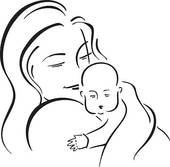The Misnomer Files: "Unconditional Love"

"Unconditional Love"
Defining terms:
Conditional: the circumstances affecting the way in which people act or feel.
Unconditional: not subject to any conditions or limitations.
Love: the involuntary attraction to virtue, or to the potential of virtue, that is based on personal creed.
Virtue: moral excellence; high character; goodness.
Creed: a set of beliefs or standards that guide someone's actions.
Inherent: existing in something as a permanent, essential, or characteristic attribute.
Attraction: any quality or feature of something, or someone, that evokes emotional attachment, interest, or desire.
Everything is conditional.
Follow this logic:
- Environment conditions creed.
- Creed conditions attraction to virtue.
- Attraction to virtue conditions love.
Therefore
- Creed and attraction to virtue are conditions of love.
- Love is conditional.
Conditions are the variables that factor whether or not you'll experience attraction or love. Your love for somebody is based on your involuntary attraction to their virtues, and your attraction to their virtues is conditioned by your creed.
So, if love is the involuntary attraction to virtue based on one's creed, then that means that creed, and an attraction to virtue, are conditions of love; therefore love is always conditional.
Love/Hate false dichotomy.

Hate/Love is a false dichotomy. There are many degrees in between, and they are conditional.
- Not hating something, doesn't mean that you love it.
- Not hating something, doesn't mean that you even like.
- Sometimes you're just indifferent.
The inverse remains true.
- Not loving something, doesn't mean that you hate it, or even dislike it; you could be indifferent.
According to logic, and to the law of non contradiction, you can't simultaneously like or love what you dislike and or hate; they are opposites.
- Like is the opposite of dislike.
- Love is the opposite of hate.
- Love > Like
- Like > Dislike
- Dislike > Hate
People can't even unconditionally like each other, and yet they insist to fool themselves into believing in the concept of "unconditional love". If you cant even unconditionally like everybody, or even just a single somebody, then how can you unconditionally love them?!
Logic says: If your love for somebody is not inherent, then it is conditional.

Some people will say, "You're taking the term too literally", but if you can't take a descriptor literally, then it isn't an accurate descriptor, and is therefore, a misnomer.
If your love for somebody is not inherent, then it is conditional, period. That's logic, not conjecture. To love unconditionally is to have no principles and or standards; no creed. That is not exactly something to be gloating or proud about. It's not some kind of noble or commendable achievment and or characteristic to be able to love immoral people; and yet somehow the claim to the ability of being able to love unconditionally has become a means of virtue signalling. If you have no standards, then what made you fall in love with that person in the first place? Why do you not love everybody to the same degree as your significant other? Do you like your neighbors, the homeless, rapist, thieves, and murderers all the same amount as your significant other? Why not? Could it be because of conditions?
To love unconditionally, is to love all people equally, regardless of any conditions. Do you like serial killers and or rapist, or would you prefer to disassociate from them?
If you still believe in, "unconditional love", would you like a cup of tea to accompany your cognitive dissonance?

Cognitive dissonance is a hell of a drug.
It takes a mental disorder like stockholm syndrome, cognitive dissonance, or sociopathy to be able to unconditionally love a person, nevermind unconditionally love a rapist! That kind of "love" is blind loyalty, and is a danger to your essence.
- If you have been raped by somebody, but you believe that you still love that person; that is stockholm syndrome, not love.
- If you consider rape and murder to be immoral, but you don't consider your significant other who rapes and or murders people to be immoral, then that's cognitive dissonance and or compartmentalization.
-If you do acknowledge them as an immoral actor, but still "love" them anyway, then that speaks of your creed; your moral compass; your personal evalutaion of objective morality, and it is an indicator of sociopathy.
If you were to compartmentalize and still love somebody after they did horrible and or immoral things, then wouldn't you be demonstrating that you value maintaining pleasant relationships with certain people based on blood relation and or past memories more than you value your principles, or disassociating with who you would otherwise consider immoral?
You are the one who sets your standards, or the conditions in which make somebody dateable, nobody else. If you require a certain characteristic in order to date somebody, that is a condition; a condition in which must be met in order for you to experience attraction. You set your standards. The conditions do not go out the window once the relationship has been established. If you reject rape and murder, but you don't reject a rapist or a murderer as a lover, or as a friend, then you have compartmentalized morality, and it is evidence that you are not principle-based, but instead that you are likely to be outcome-based; or, a sociopath.
A mother's love for their child

Is there a type of love that is not the result of an involuntary response to virtue?
One mode of love that has gone unmentioned is the love that a mother feels for their child; but what is that love based on if not an involuntary attraction to virtue? Could it be based on the perceived potential for virtue?
A blank canvas, if you will?
An extention of yourself that starts off as a blank canvas of nearly infinite potential; and you have a brush.
"A mother's love never ages."A love that doesn't age, is a love that doesn't grow. A love that doesn't grow, is a love that is stagnant and does not increase in scope. A love that doesn't increase in scope is fixed on a memory, rather than the present.
Could it be that this stagnant form of love is actually just an attraction to the achievement of gestation and the birthing process of the child, and that it has been conflated with feelings of "love" for the actual child? Don't conflate your love for a memory or event, with the love for a person. To be more accurate, it seems that what is actually being felt and erroneously described as "unconditional love", is an attraction to the gestation and birthing process that was experienced, rather than love for the child itself. An emotional attachment to an event and or memory that is linked directly to the child is not love.
Distinction between attraction and love.

Attraction and love are not to be conflated; as one is specific to virtue while the other is not. If you claim to love a child, who by your own standards would be considered immoral, then is it really "love" that you're feeling? Or would it more appropriately be described as a feeling of emotional attachment based on the quality of blood relation; or simply meaning, attraction. A feeling of emotional attachment based on blood relation or memories of the past is a form of attraction, not love.
If your kid killed my kid, just because they felt like it, or over a disagreement, would you still "love" your kid?
If you you answered yes to that question, then you have a mental disorder; or you don't know the difference between attraction and love. That kind of "love" (attraction) is akin to blind loyalty and is very dangerous. If I were in that position, I'd feel resentment, dissapointment, sadness, anger, confusion, shocked, and empathy for your kid; but love for my kid, is not what I'd be feeling.
Do you value the quality of blood relation more than objective morality?
What if your kid raped their own sister, and then attempted to murder your husband?
Would that behavior sustain your attraction to their virtue, or are you just still feeling emotionally attached to the past or because of blood relation?
Holding on to the past and applying it to present reality is a good way of causing detriment to yourself and others.
Brilliant article, thanks! I would like to include it in my TOP5 Lucky Find Psychology articles for today! :)
Here is a post where I'm featuring your article:
https://steemit.com/psychology/@aleksandraz/daily-psychology-it-s-a-lucky-find-8-today-s-top-5
Thank! Appreciated!
A cleverly written article but I think that your definition of love is incredibly limited and your logic disintegrates if a deeper definition is used.
Love is simply wanting the best for someone even when that conflicts with what is best for yourself. This has absolutely nothing to do with involuntary responses to virtue.
An example is the true story of a mother who convinces her 14 yr old son to turn himself over to the police after he confesses to her that he took part in the gang rape of a woman. He's horrified by what he has done and his defence is that he was afraid of the older boys. His mother loses her son and she loses (some) community respect but she still convinces her son that it is best for his welfare, in the long run, if he takes responsibility for his crimes. She knows that her son was weak and she knows that if he isn't punished he risks becoming corrupted further. She can love her son, who is her responsibility, without liking him or his actions.
This is unconditional love. I'm sorry that you can't understand it because that probably means that you are yet to experience this kind of love.
Literally EVERYTHING in life is conditional.
Unconditional love is a misnomer, and only people with mental disorders can appear to practice it.
If you keep telling yourself that then at the end of your life, Stickman, you will realise that you made your world 2D, fit only for a brittle man of sticks.
There is nothing inaccurate about describing love as unconditional, maybe it's the exception that proves the rule. I haven't tried to discover anything else that's unconditional, so I wouldn't know about everything else but you are dead wrong about love. In fact, conditional love is the misnomer because if it has conditions then it isn't love, rather it is lust or possession.
Are you perhaps a sociopath? You basically called all non-sociopaths, "nutters". You might be in dee nile.
This post has been linked to from another place on Steem.
About linkback_bot